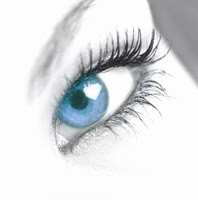Many types of refractive errors are correctable by Lasik. The end result of the Lasik procedure can be influenced by varying degrees of severity. There are still benefits of having surgery for those with very bad eyes, but they still may need glasses.
Refractive errors are eye conditions which keep light from focusing correctly, causing blurred vision. Glasses or some other sort of corrective device will be needed by that individual, to see focused objects.
In a healthy eye, light will pass through the cornea and lens, and it is able to focus into the correct location on the retina. Refractive errors occur when an eye is misshapen.
Myopia is better known as nearsightedness. This is the most common refractive error correctable by Lasik. A person who has myopia will experience light passing through the cornea and lens, but it then focuses in front of the retina. A cornea that is too long or too curved will easily cause this. A symptom of this condition is blurry vision at a distance.
Farsightedness is also called hyperopia. Lasik surgery can also correct a refractive error. Farsightedness is essentially just the opposite of nearsightedness. Light passes through both cornea and lens and becomes focused behind the retina. In this case, the cornea is too short and flatter than normal. Near vision will be blurry if light is focused behind the retina.
Lasik can also correct astigmatism, which is another type of refractive error. An eye not consistently curved causes this condition. Light passes through the cornea and the lens, and it focuses at various points behind and in front of the retina of patients with astigmatism. Patients who suffer from astigmatism have blurry vision at both close and far distances.
Presbyopia, more commonly known as aging of the eye, is another type of refractive error that can be corrected utilizing Lasik. It typically presents in persons over forty. As people age, they lose the ability to focus the lens of the eye, and that loss causes presbyopia. The need for reading glasses, or bifocals, often comes from this condition. Presbyopia can also be corrected through laser eye surgery.
Each of these is one of the refractive errors Lasik can fix. Every refractive error needs a slightly different method for correction, using the laser technology. The cornea is reshaped using the laser to create peaks and valleys within the cornea. This will in turn cause the light that is passing through, to focus in directly on the retina, which will result in clear vision.
With Lasik laser vision correction, most patients experience clear vision, with the potential of that vision being near perfect. People with acute farsightedness are those who are at a higher risk for requiring the additional support of a weak prescription of corrective lenses after surgery. Your possible success rate should be evaluated, and your concerns should be addressed during the screening process. Keep in mind that no procedure is 100% effective for every single patient.
What first peaked Joe Palerma's interest in Stockton LASIK surgery was the research he had done on the types of refractive errors that can benefit from laser vision correction. After consulting with the experts at Zeiter Eye Care, Joe was made aware of a number of the benefits of LASIK surgery and recommends the Zeiter Eye Care specialists for Stockton eye care
Saturday, December 8, 2007
LASIK Can Fix A Number of Refractive Errors
Subscribe to:
Post Comments (Atom)

No comments:
Post a Comment